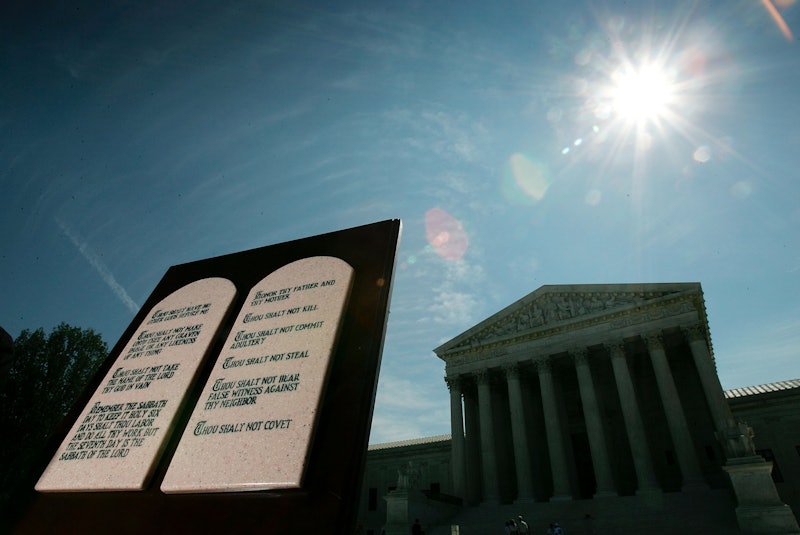News
It's Been A Weird Week For Religion
In case you missed it, here are some of the week's top stories in religion: Pope Francis got some big news this week when he was named Time magazine's person of the year. In Oklahoma, a blurring of the lines between church and state led satanists and Hindus to request monuments to their faiths near the statehouse. The good ol' boys didn't really think this one through. Then, we were reminded that it's really, really tough to be an atheist, and that being a non-believer can get you the death penalty in 13 countries around the world. In the UK, a court ruled that Scientology actually is a religion, overturning a lower court's ruling that its services did not involve acts of worship. The Mormon Church took a look back over its history books, and talked openly about its long-standing ban on black priests, which was removed in 1978. A Michigan bishop spoke out about coming out about her same-sex marriage and resigning from her position in the church, and the Washington Post took a stab at mapping out religious life in America. Check it out.
Longreads
And here are the longform pieces you shouldn't miss.
Time magazine elected Pope Francis its person of the year. The people's pope paved the way for his legacy with the name he chose:
This papacy begins with a name. Jorge Bergoglio is the first Pope to choose as his namesake Francis of Assisi, the 13th century patron saint of the poor. The choice, coming after 14 Clements, 16 Benedicts and 21 Johns, is clearly and pointedly personal. The 13th century Francis turned to the ministry when, as legend has it, he heard a voice calling to him from a crucifix to repair God’s house. He left his prosperous silk-merchant family to live with the poor. He was a peacemaker, the first Catholic leader to travel to Egypt to try to end the Crusades. He placed mercy at the core of his life.
Of course, you can also read our list of reasons why this was a great choice.
Tablet looked at religious revival in Tel Aviv, Israel's so-called "sin city." In the Miami-esque metropolis, secularism and religiosity exist side-by-side:
Part of this reflects an influx of immigrants, mostly Orthodox and Conservative/traditional, who have instilled a distinctly Diaspora-style, synagogue-based model of community to the scene. Part is also due to more Shabbat-observant Israeli singles moving to Tel Aviv from other cities, in search of a more liberal lifestyle. But part, too, is due to some increased interest in religious activities among Israel’s secular Jews.
What happens to Mormon missionaries who don't serve out their full two years? Often, even when they leave early because of medical conditions, these young people fear being ostracized:
A majority of missionaries who return home earlier than expected may experience feelings of failure, according to a limited UVU study released last month. Experts say the young missionaries for The Church of Jesus Christ of Latter-day Saints are like other men and women 18 to 23 years old who leave home for college, work or the military. Newfound independence comes with unaccustomed stress.
